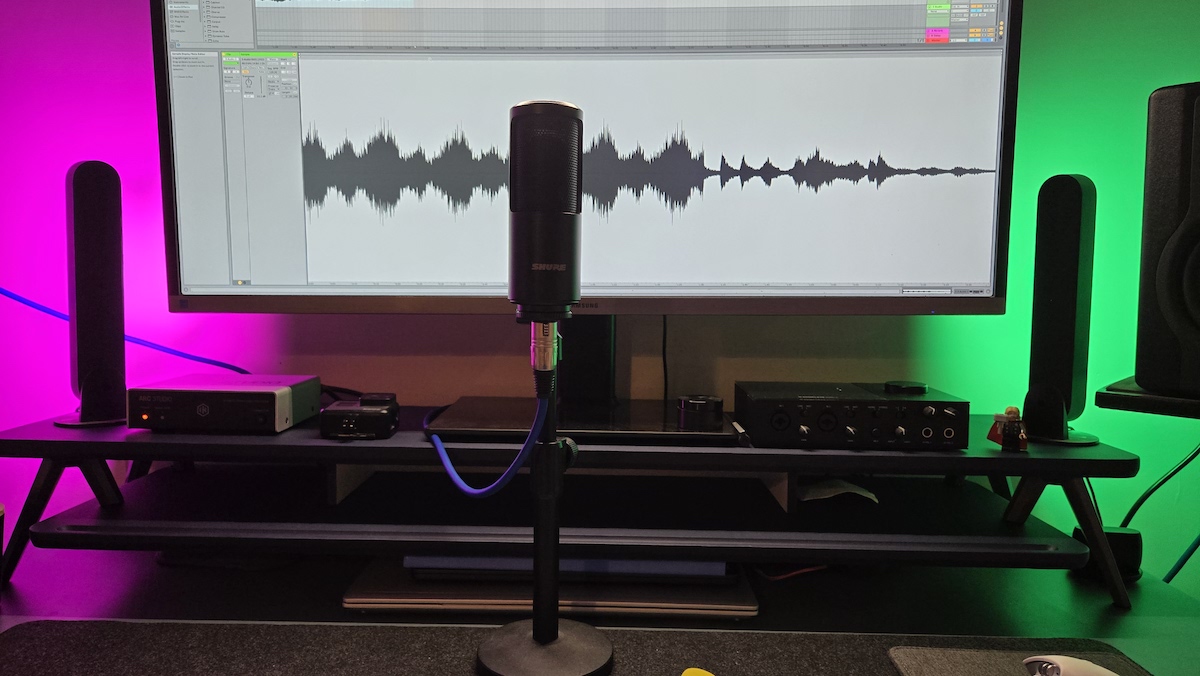MusicRadar Verdict
The Shure SM4 delivers clean, interference-free sound which doesn’t require a huge amount of tidying up in post. As a capable, reliable mic for the home studio enthusiast, it’s up there with the best of them.
Pros
- +
Interference-free recordings
- +
Built-in pop filter
- +
Looks great
Cons
- -
Lacks multiple polar patterns
- -
Limited low-end depth
MusicRadar's got your back
Shure SM4 review: What is it?
In the world of recording microphones, few names command respect as much as Shure. From its industry-standard SM57 and SM58 mics, through to the broadcast and podcast mic royalty that is the SM7b, Shure knows a thing or two about a thing or two. Hence why we were so excited when it announced it had a new mic ready for us to test, namely the Shure SM4.
As a large-diaphragm condenser microphone, designed for home studio users who need pro-grade sound without lots of hassle, the SM4 is an enticing proposition. It features a cardioid polar pattern, rejecting noise from the sides and rear, making it perfect for recording vocals or instruments at home. It also has some unique proprietary tech thanks to the inclusion of an interference shield which acts as a Faraday cage to protect the mic’s capsule from microwave interference.
Think of how many screens, mobile devices and other electronic things you have in your recording space. Each of these has the potential to add unwanted noise and gremlins to your recordings, so the inclusion of a shield to protect against these is so good you wonder why they aren’t present on more mics. Sure, you can faff around with ferrite capsules, but it’s better if the mic just deals with it itself right?
A lot of thought has gone into the overall package too, with small details like the length of the elastic bands on the shock mount tweaked to improve performance. So, potentially, there’s a lot to like here. But how does it measure up in the studio? Let’s take a look.
Shure SM4 review: Performance & verdict
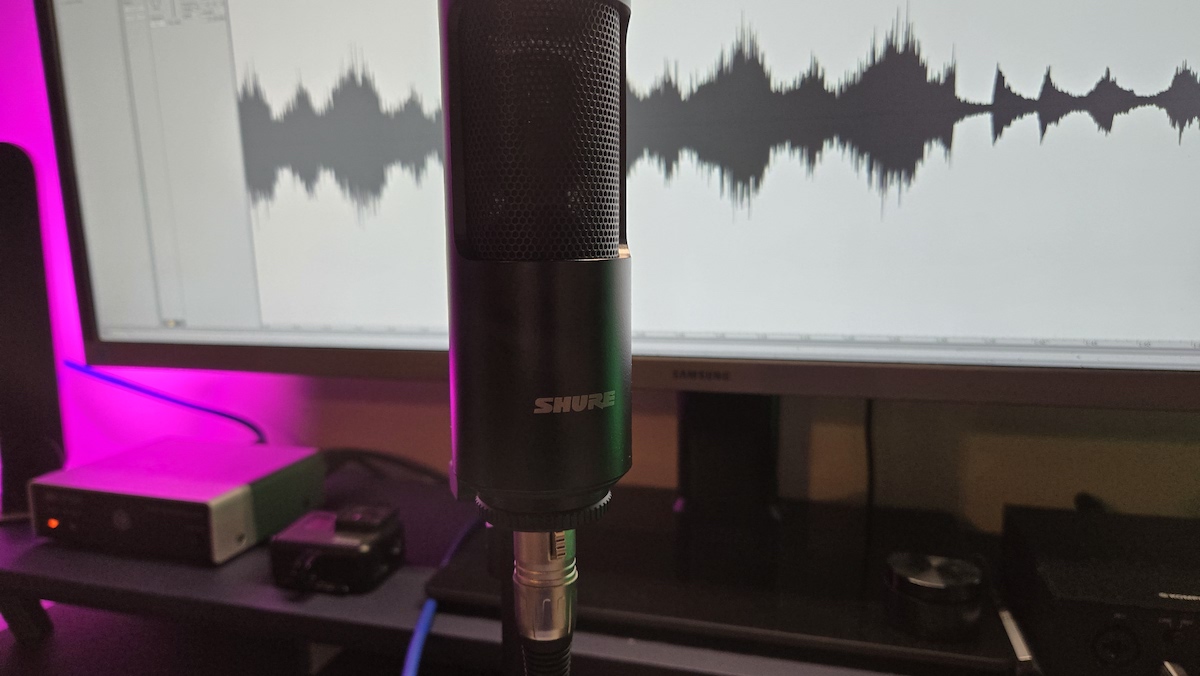
Standard testing procedure for large diaphragm mics means I test each with an acoustic guitar, from multiple angles, and then a speech reading from a variety of different scripts. In each of these tests, the SM4 performed admirably. In purely sonic terms the SM4 shone, capturing rich mid-range frequencies, making it an ideal choice for vocals and acoustic instruments. It picked up plenty in the way of detail without ever being overly harsh, which means I captured a polished sound that didn’t require too much post-production.
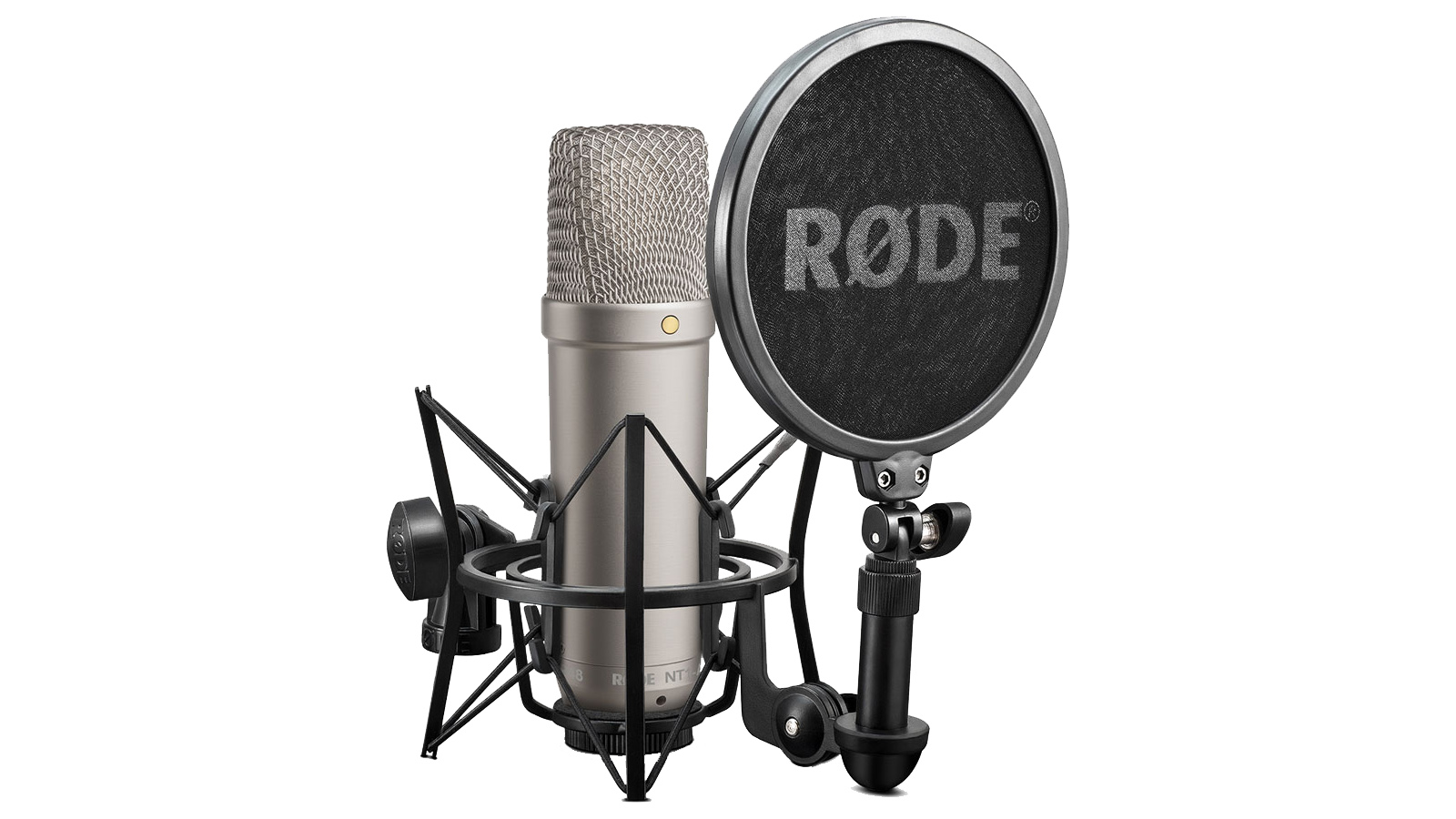
Audio Technica AT2020
Rode NT1A
AKG P420
The interference shield, a key part of the value proposition, was also surprisingly useful, protecting my recordings from the multitude of other electronic gear I have to hand at any given moment. As someone who often prints out voiceover scripts, for fear of holding a phone too close to the mic, this is a small innovation I can get behind. I can see a situation where a singer might have lyrics on their phone, so the ability to have said phone up close without worrying about it pinging or zapping your take is something you’ll appreciate. The fact it also acts as an internal pop filter is a bonus, saving you from extra accessories or making your setup look too bulky. Vocals come through clean, crisp and present, aligning with Shure’s promise of ‘mix-ready’ sound.
Aesthetically, the SM4 looks quite understated. The matt black finish looks classy, and it’s certainly not an attention-grabber - I say this as a good thing. Shure says it’s put a lot of thought into the design, keeping in mind that often people are filming video at the same time as recording audio. This could be for YouTube videos, or it could be for Teams/Zoom video calls, but the fact it doesn’t dominate visually is a positive thing in my eyes. This same trend for discrete design extends to the shock mount, which has been similarly slimmed down. The elastic bands have also been shorted, reducing the inevitable mid-life sagging that happens to the best of us.
Want all the hottest music and gear news, reviews, deals, features and more, direct to your inbox? Sign up here.
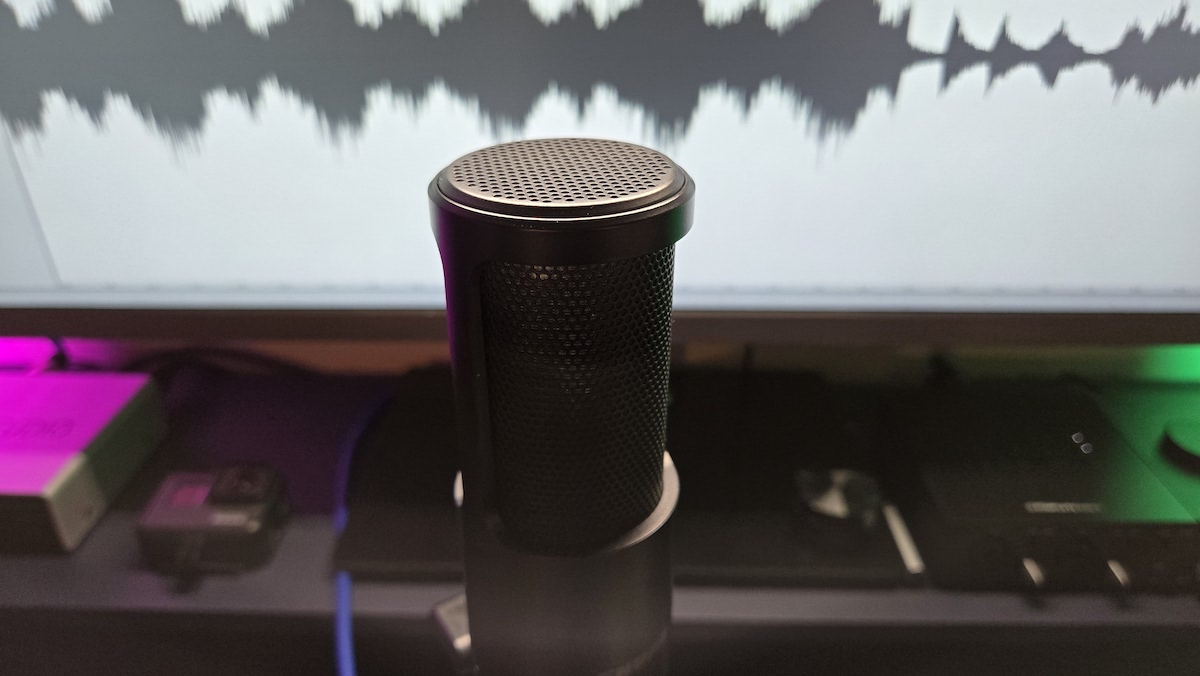
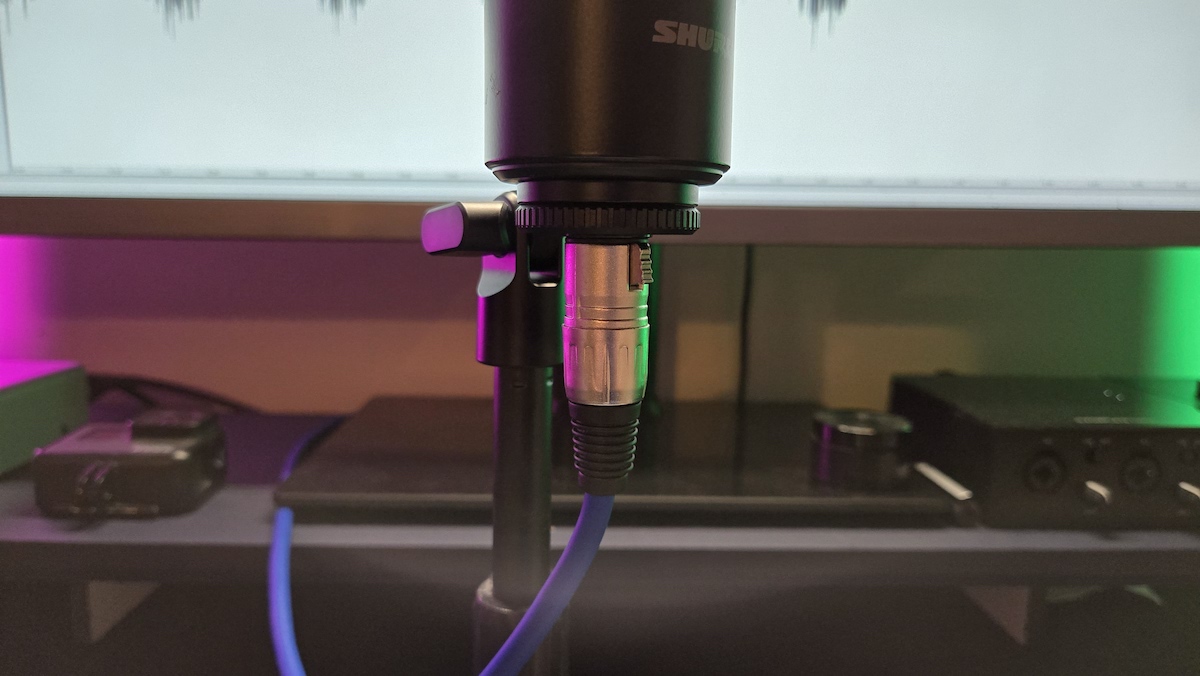
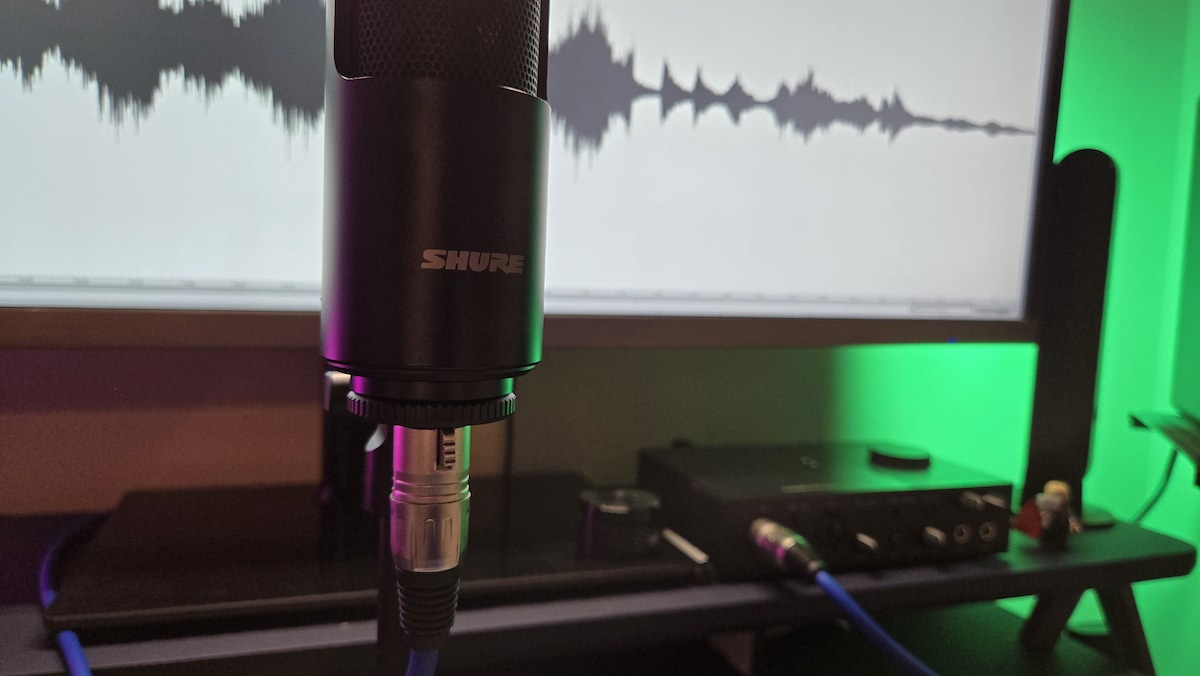
The fact remains, however, that this is a crowded marketplace. In the same price range, alternatives like the Audio Technica AT2020 and Rode NT1A are worthy contenders. The Rode, in particular, is known for its ultra-low self-noise, making it a favourite among home studio users who prioritise noiseless recording environments. However, the SM4’s interference shield and compact shock mount give it a real edge when recording in spaces where interference from electronics is common, or where visual presentation is just as important as sound quality.
Who stands to benefit most from the SM4 then? If you’re a singer-songwriter, podcaster or content creator who needs a microphone that’s easy to set up, resistant to interferences and delivers professional sound with minimal effort, then the Shure SM4 is an excellent choice. Its compact size, internal pop filters and durable options make it a flexible option, particularly in multi-use spaces or for people who need to shoot video alongside their audio recordings.
Shure SM4 review: Hands-on demos
Dealcasters
LAS Curry
Obscure Mics
Shure SM4 review: Specification
- Type: Condenser
- Polar pattern: Cardioid
- Frequency response: 20Hz to 20kHz
- Connection: XLR
- Weight: 463g
- Contact: Shure
Chris Corfield is a journalist with over 12 years of experience writing for some of the music world's biggest brands including Orange Amplification, MusicRadar, Guitar World, Total Guitar and Dawsons Music. Chris loves getting nerdy about everything from guitar and bass gear, to synths, microphones, DJ gear and music production hardware.
